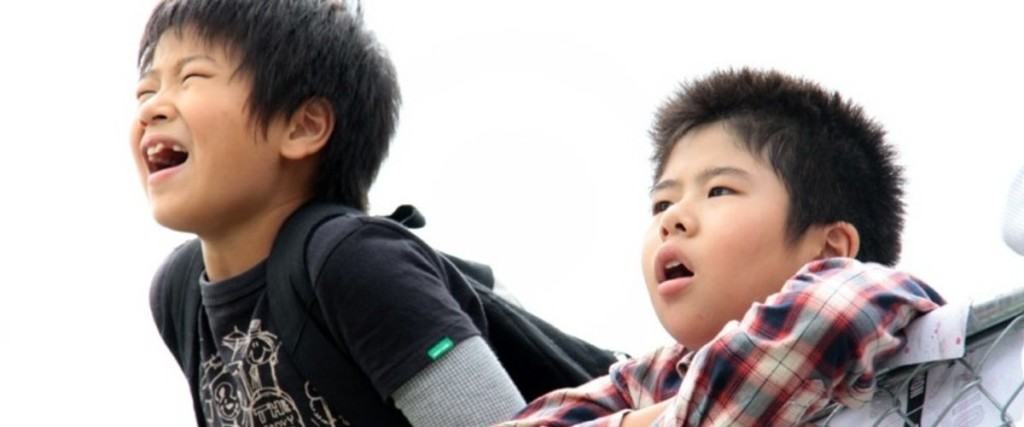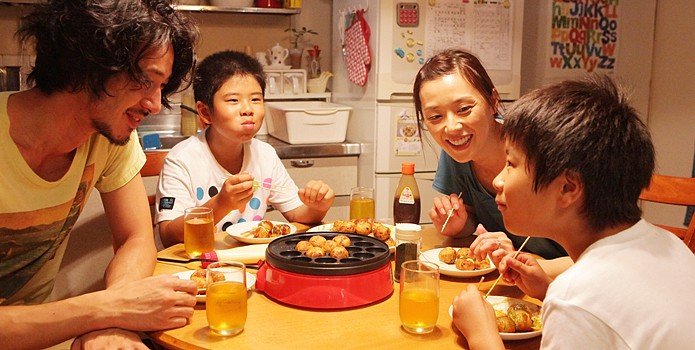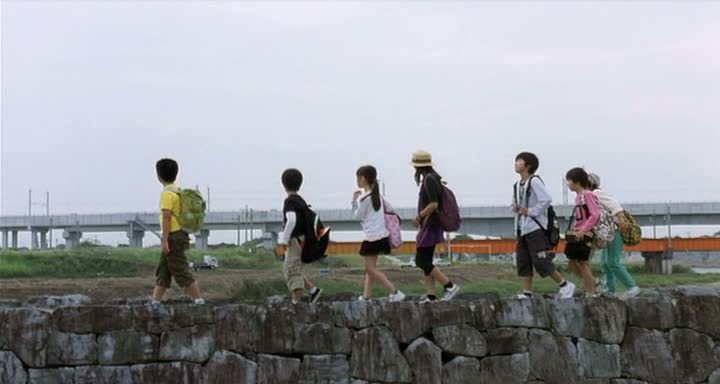There is a breath-taking scene in Hirokazu Kore-eda’s lyrical family drama I Wish (2011), where a bunch of enthusiastic kids make a wish as two high-speed trains pass each other. The legend is that a wish made at that precise moment of both the ‘bullet trains’ crossing each other will come true. Everyone shout their lungs out to make a wish. The wishes ranges from something as simple as running fast to as caring as quitting dad’s drinking problem, and as complex as bringing a dead cat alive. It’s hard not to be moved by the quiet emotional intensity this scene packs. The kind of honesty and innocence these kids display is so heart-warming. In fact, it’s a very uplifting moment that in some corner of your heart, you really want all these wishes to come true. Of course, your cynical self is certain that they possibly wont.
On the outset, I Wish seems to possess the quality of a fable. But it lingers in the realm of a graceful realistic tone & an earnest approach, where two little brothers stay apart due to their parents’ separation. The siblings in their own way attempt to reconcile with that painful reality. Though the plot is about the kids trying to bring together their parents, the process is anything but simple. Moreover, this process of uniting the separated couple, thankfully, never relies on cliches or manipulative moments. The narrative also takes lovely detours, full of painstakingly observed character moments. The adventures of two siblings, in a roundabout way, deals with the sociological dimension alongside the central story line.
Interestingly, writer-director Hirokazu Koreeda while hunting for children to play the siblings, accidentally stumbled upon the Maeda brothers. They happen to be a stand-up comedy duo. Koki Maeda plays the role of stoic, tough- minded elder brother Koichi. He stays with his mother and is concerned about the dust emanating from a active volcano. His parents’ separation has deeply impacted him emotionally. This particularly is reflected when Koichi is asked to write an essay about his father’s job. He just remains nonchalant about the assignment.
Koichi secretly wishes that the active volcano to go off so that they would have to evacuate the city and move to his father’s place. Ohshiro Maeda plays the younger sibling Ryunosuke. He is full of life, finds humor in almost everything. Ryu stays with his guitar-playing father. Rather than crying over the situation, both the siblings keep themselves busy. They engage in fun activities like every other kids. Koichi and Ryu meet up and spend time with their friends, engulfed in an atmosphere of unbridled enthusiasm.
Therefore, when Koichi overhears his fellow class mate talking about the old legend involving passing trains, he and his friends devise an elaborate plan to make it work. I Wish, whose original title ‘Kiseki‘, very aptly, translates to ‘Miracle’, explores every moment with a child-like wonder. The narrative deeply explores the brothers’ every emotion and sensory pleasure despite the general instability in their life. Every other character brings forth different shades to the empathetic drama which allows us to perceive our own self at different ages.
As much as I Wish benefits from nuanced writing and directing, it also largely works due to the the splendid performance by the child actors. In fact, the kids perform as it they are oblivious to the fact that cameras are around them. Koreeda seems to have written the narrative to unfold in small episodes. At the same time, he has fused them together seamlessly in order to withhold the perfect flow of a drama. On the top of it, it has array of scenes that will melt your heart.
For instance, a kid asks an elderly couple if they had any wish which he can ask on their behalf. The old woman replies that her wish had already come true. The implication here is that kids coming to stay with them was all the elderly couple could wish for. In another sublime moment, when Ryu’s mother asks Ryu why he does not call her or find the time to meet her. It is heart-breaking when Ryu responds saying,”you think I’m just like Dad, so I was afraid you wouldn’t like me.”
“I want you to grow up to be someone who cares about more than just your own life,” the father tells Koichi on the phone. It concisely summarizes the film’s definition of maturity, which is less about achieving a dream than accepting one’s place in the larger world, as messy, sad, and wonderful as it can be.





